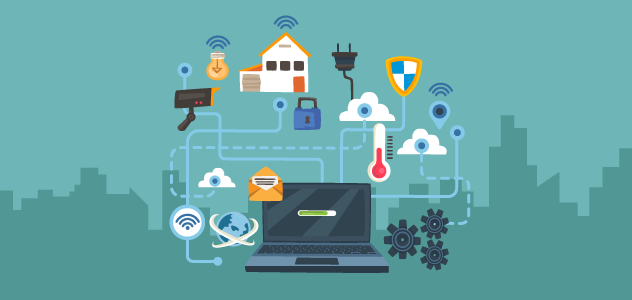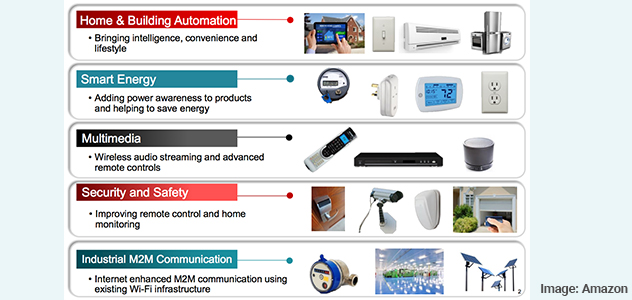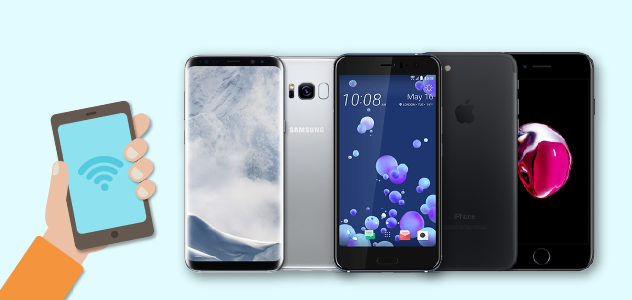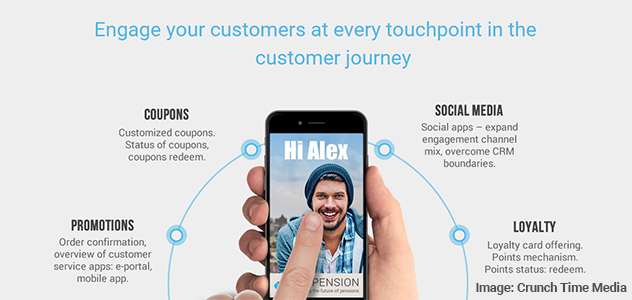Many businesses are now adopting cloud technology and taking advantage of many organisational tools. These…
Internet of Things and why businesses have started to pay attention to it
Posted on 22nd March 2018 under Blog.

The Internet of Things (IoT) is transforming businesses with the unity of smart devices.
Today, it’s important that businesses start bringing innovation into their strategy where possible to be successful and stay ahead of competitors. We tell you how the IoT could change the way business operates.
What is IoT?
The IoT is the connection between computing devices, web-enabled machines, and the people who use them, over the Internet. This enables them to communicate with each other and exchange data.
Analyst Gartner calculates that around 8.4 billion IoT devices were in use in 2017, up 31% from 2016. And this will likely reach 20.4 billion by 2020.
Nowadays, everything seems to be connected to the Internet – phone systems, mobiles, watches, computers, smart-home devices, toys, cars, and even toasters.

Its development has made businesses put this data to use, and completely rethink how they deliver their services and disrupt consumer interactions.
How does the IoT benefit businesses?
The IoT is a digital transformation which is set to change the way businesses operate and will bring a wave of new opportunities. Although over 95% of people in the west are using an IoT device, only 7% of the businesses have a strategy for it. Here’s what the future holds for companies that do plan for it:

Better customer service
Gartner predicts, this year, there will be six billion connected devices requesting support. It also predicts that 5% of customer service cases will be initiated by web-enabled devices via the IoT.
If customers have a problem and don’t receive a solution fast, they’ll end up unhappy, and that could put your business’s reputation on the line. Luckily, connected technology could resolve this common problem. The IoT could revolutionise customer service, as technology could identify and solve problems quicker than people over the phone.
For example, if manufacturers choose to add ‘smarts’ to household products, then the users will be able to control appliances by using network connections and the Internet. These same communications can then be used to monitor products and provide proactive support.
For example, if a product has failed and needs servicing, a message could be sent to manufacturer’s customer service team and the problem can be fixed. This could work for anything from a security system to a car, or your washing machine.
The potential applications of the IoT are endless.
More personalised experience
The leverage of connected devices means an organisation can obtain valuable consumer data, such as buying patterns, behaviours and preferences, and tailor products and services to customer’s needs. This provides business owners with new digital opportunities to increase their revenue.

Research shows that 70% of buyers want a more personalised shopping experience. So, for example, and energy supplier can use IoT data to create accurate bills with no extra charges and offer personalised tariffs that reflect the consumer’s actual usage and needs.
Businesses which take full advantage of the IoT will make their customer experience more engaging, seamless and personal.
Increased efficiency and productivity
The IoT allows for mobile business management, so employees can stay better connected.

A recent study by IDG concluded organisations that implemented technologies to support mobile infrastructure reported around 50% increase in productivity. Employees become more productive due to their ability to work from anywhere.
IoT technologies can be applied to business functions throughout the office space too. For example, the use of wearable IoT merchandise – such as a smartwatch or Fitbit – helps to ensure information and activities are accurately tracked. Cloud-based telephone systems also improve collaboration and communication, increasing the overall productivity and efficiency of your business.
The unity of devices means employees can manage their work from anywhere over a shared network.
Continuous, real-time access to essential data
A huge benefit to enterprises is that – via IoT – they can monitor their products and receive real-time feedback about how they’re being used, and flag up any problems.

Rolls Royce is a great example of a company that has used IoT to improve the machinery it relies on. Its aircraft engines have been fitted with sensors that communicate real-time data back to ground staff, mitigating risks in high-stress environments.
Microsoft also uses software which detects what features are being used for its products, so it can get rid of the least popular ones and focus on the most popular. This means the brand can provide the most valuable products to its users, dramatically improving their customer experience.
Security challenges of the IoT
The fact that these devices are connected to the Internet presents a security challenge, as each is exposed to external attacks.
The difficulty comes as outsiders are looking to gain unauthorised access to user’s IoT devices. A report from Samsung says the need to secure every connected device by 2020 is critical. If business owners want to implement the IoT into their strategy, they must take the necessary precautions to protect customers’ data.
Security needs to be built into the design of these devices and systems to create trust for the user. Companies need to ensure that they keep up to date with software updates on all devices, and users need to do the same.
To prevent risk from the start, business owners need to just be aware of security and privacy implications which are associated with data the IoT will generate.
A notable case was when hackers managed to hack into kitchen devices across the UK. Smart toasters forced consumers into reconsidering their food choices by refusing to toast any bread that wasn’t ‘healthy’. Smart freezers across the UK also started shutting down as soon as ice cream was placed in them.
For your business, you’ll want to enlist the services of a provider which is aware of such considerations from the get-go.
Our cloud-based telephone systems mean businesses can stay innovative and improve their communications. Interested? Get in touch.
Related Posts
- How to work faster and smarter with the cloud
- How to make a smooth transition to a cloud-based phone system
The innovative nature of cloud means business owners across the UK are choosing to move…
- 6 Ways To Grow Your Dental Practice
As technology advances, it is important to embrace it and stay ahead. Recent developments have…
- A guide to VoIP phone systems for small businesses
A phone call is still a popular communication method but advancing technology is changing the…
- Can slow internet affect business growth?
For many businesses, growth signals success. It creates new opportunities, increases customers and generates greater…

